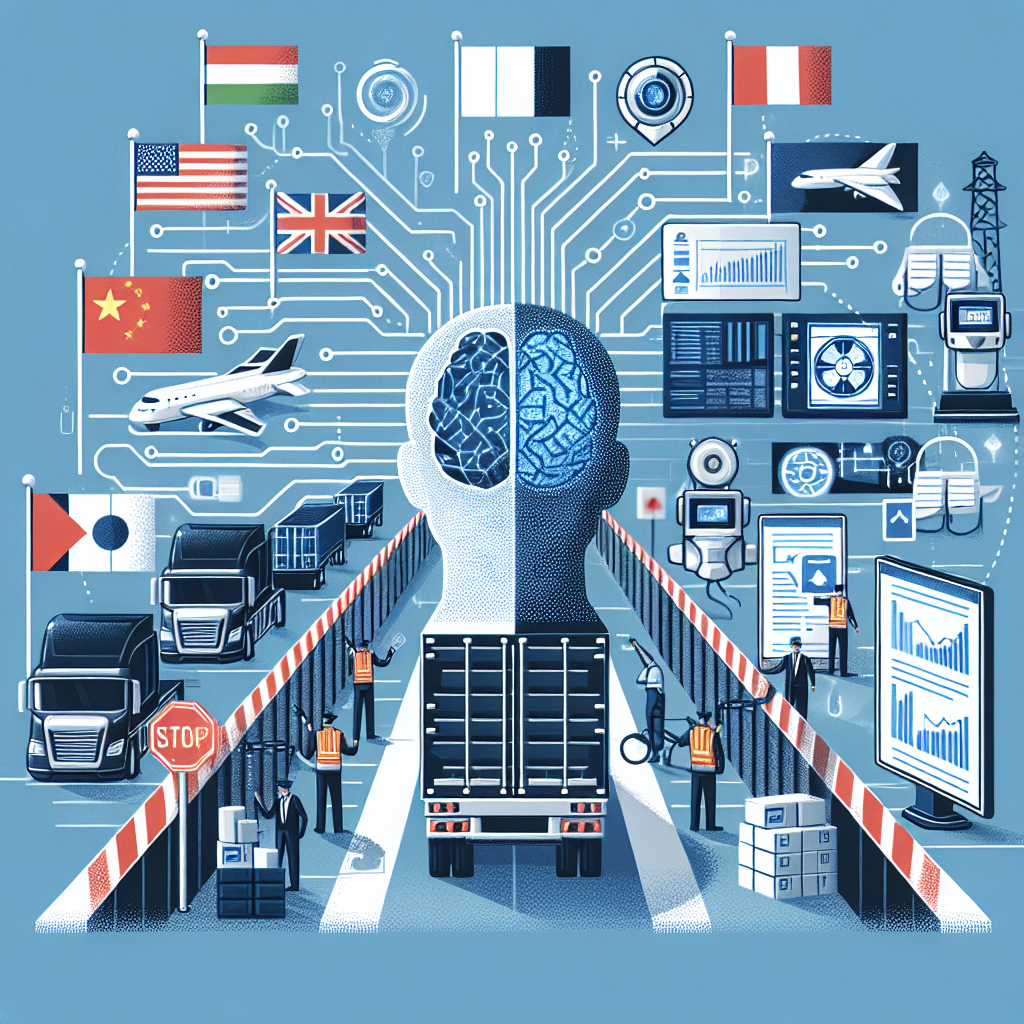In today’s globalized economy, cross-border trade is a crucial aspect of many businesses, especially in the logistics industry. However, navigating the complex web of customs regulations and compliance requirements can be a daunting task. This is where artificial intelligence (AI) solutions come into play, offering innovative ways to streamline the logistics process and ensure compliance with customs regulations.
AI solutions leverage advanced technologies such as machine learning, natural language processing, and predictive analytics to automate and optimize various aspects of cross-border trade and customs compliance. From document processing and classification to risk assessment and predictive modeling, AI solutions have the potential to revolutionize the way logistics companies operate in a global marketplace.
One of the key benefits of AI solutions in cross-border trade and customs compliance is their ability to improve efficiency and accuracy. By automating repetitive tasks such as document processing and data entry, AI solutions can reduce the risk of human error and ensure that shipments are processed quickly and accurately. This not only saves time and money for logistics companies but also helps to avoid costly delays and penalties for non-compliance with customs regulations.
Another advantage of AI solutions in cross-border trade and customs compliance is their ability to enhance risk assessment and predictive modeling. By analyzing vast amounts of data in real-time, AI solutions can identify potential risks and trends that may impact the movement of goods across borders. This allows logistics companies to make informed decisions and take proactive measures to mitigate risks and ensure compliance with customs regulations.
Furthermore, AI solutions can also improve transparency and visibility in the logistics process. By providing real-time tracking and monitoring of shipments, AI solutions enable logistics companies to have a clear understanding of where their goods are at all times. This not only helps to improve communication with customers but also enhances security and reduces the risk of theft or fraud during transit.
Overall, AI solutions offer a wide range of benefits for logistics companies involved in cross-border trade and customs compliance. From improving efficiency and accuracy to enhancing risk assessment and visibility, AI solutions have the potential to transform the way logistics companies operate in a global marketplace.
FAQs:
Q: How can AI solutions help with customs compliance in cross-border trade?
A: AI solutions can automate and streamline various aspects of customs compliance, including document processing, classification, risk assessment, and predictive modeling. By leveraging advanced technologies such as machine learning and natural language processing, AI solutions can help logistics companies ensure compliance with customs regulations and avoid costly delays and penalties.
Q: What are the key benefits of using AI solutions in cross-border trade?
A: Some of the key benefits of using AI solutions in cross-border trade include improved efficiency and accuracy, enhanced risk assessment and predictive modeling, and increased transparency and visibility in the logistics process. AI solutions can help logistics companies save time and money, reduce the risk of human error, and make informed decisions to mitigate risks and ensure compliance with customs regulations.
Q: How can logistics companies implement AI solutions for cross-border trade and customs compliance?
A: Logistics companies can implement AI solutions by partnering with technology providers that specialize in cross-border trade and customs compliance. These providers can offer customized solutions that are tailored to the specific needs and requirements of logistics companies, helping them leverage the power of AI to optimize their operations and ensure compliance with customs regulations.

